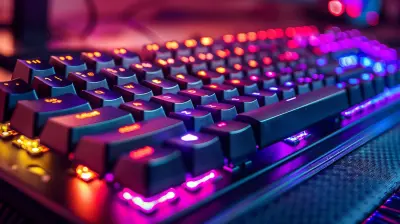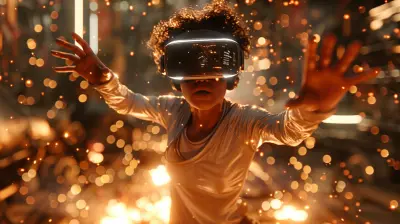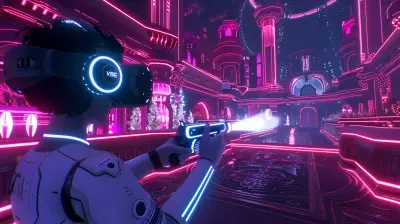Behind the Curtain: The Voice Direction Process in Video Game Development
26 April 2025
When you boot up a video game, what’s the first thing that pulls you in? Sure, the graphics are stunning, and the gameplay mechanics might be smooth as butter, but there’s a good chance the voices of the characters are what truly make the experience immersive. That witty rogue quipping mid-battle? The snarling villain delivering spine-chilling threats? Those voices didn’t just happen by accident. There’s an art (and a lot of hard work) involved in bringing those characters to life.
So, how exactly does it all happen? What’s the process behind the magic? Well, buckle up, because we’re diving into the fascinating world of voice direction in video game development. And trust me, there’s way more to it than you think.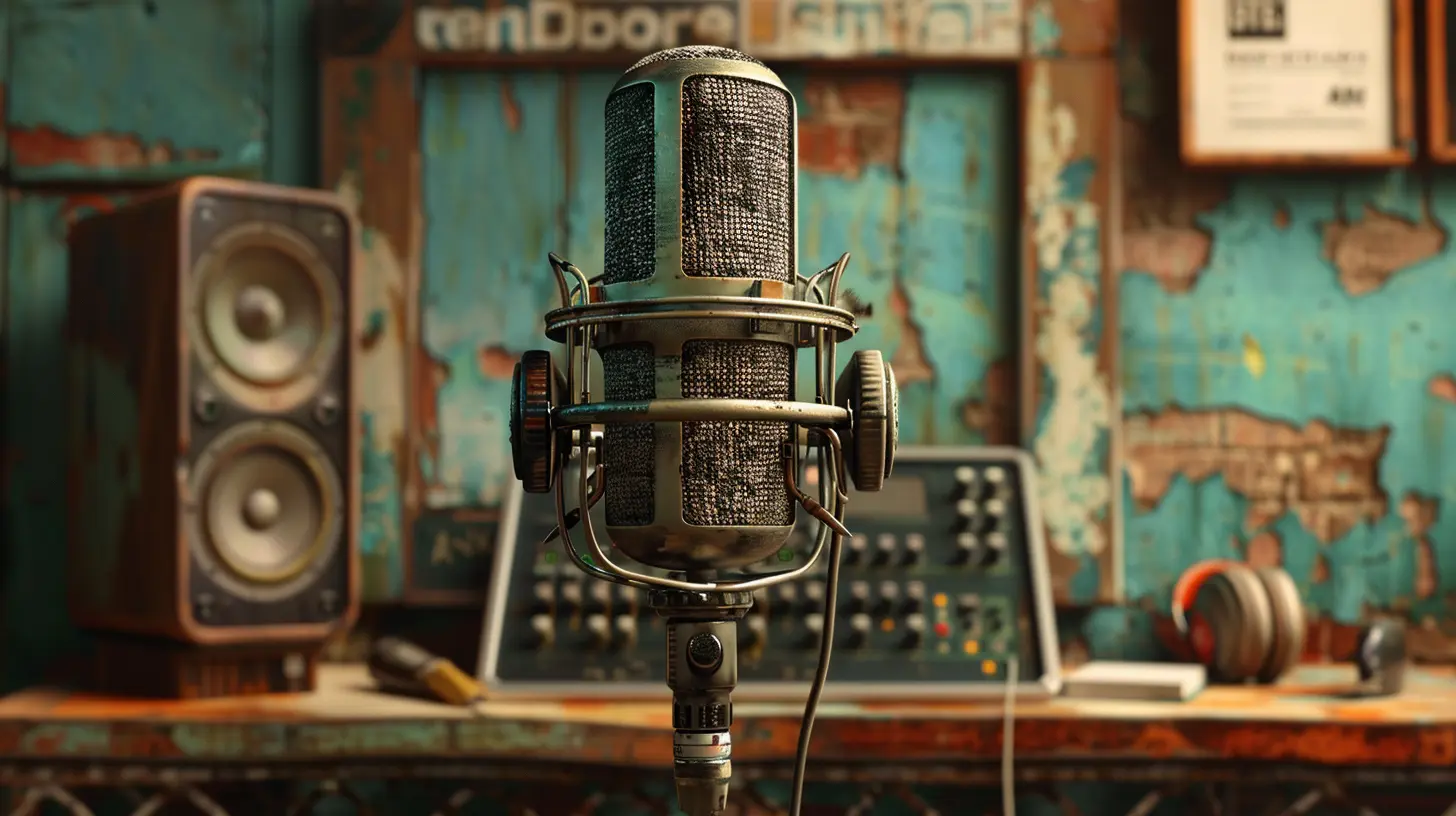
Why Voice Direction Matters
First things first—why does voice direction even matter? Can’t you just toss a script at a voice actor and call it a day? Not so fast. Voice acting in video games isn’t just about reading lines; it’s about creating a believable world. It’s the glue that binds the story, the characters, and the player’s emotions together.Think about it: a poorly delivered line can yank you right out of the experience. On the other hand, a perfectly timed, emotionally charged performance? That’s what makes your heart race during a boss fight or leaves you wiping away tears after an emotional cutscene. Voice direction is the behind-the-scenes magic that ensures every line hits just right.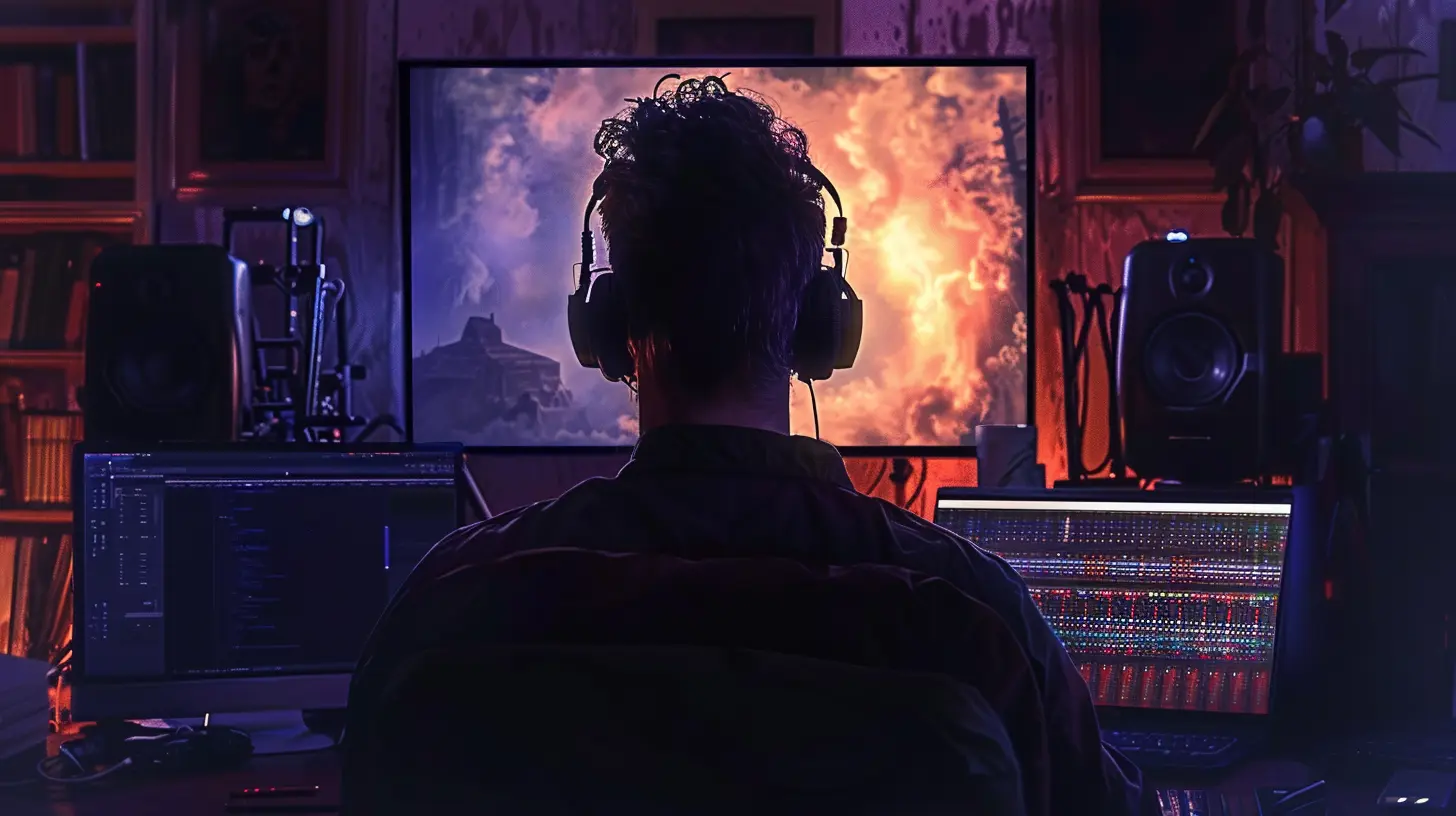
The Role of the Voice Director
Voice direction isn’t a one-person show, but the voice director plays a massive role in the process. If the game’s narrative is a ship, then the voice director is the captain steering it through turbulent waters. They’re the ones who work closely with writers, producers, and actors to make sure everything aligns.The voice director’s job is a mix of creativity, technical know-how, and people skills. They guide the actors to hit the right emotional beats, ensure the dialogue matches the tone of the game, and make sure the lines flow naturally. Oh, and they also have to juggle a million other things—like making sure voice-over sessions stay on schedule and within budget. No pressure, right?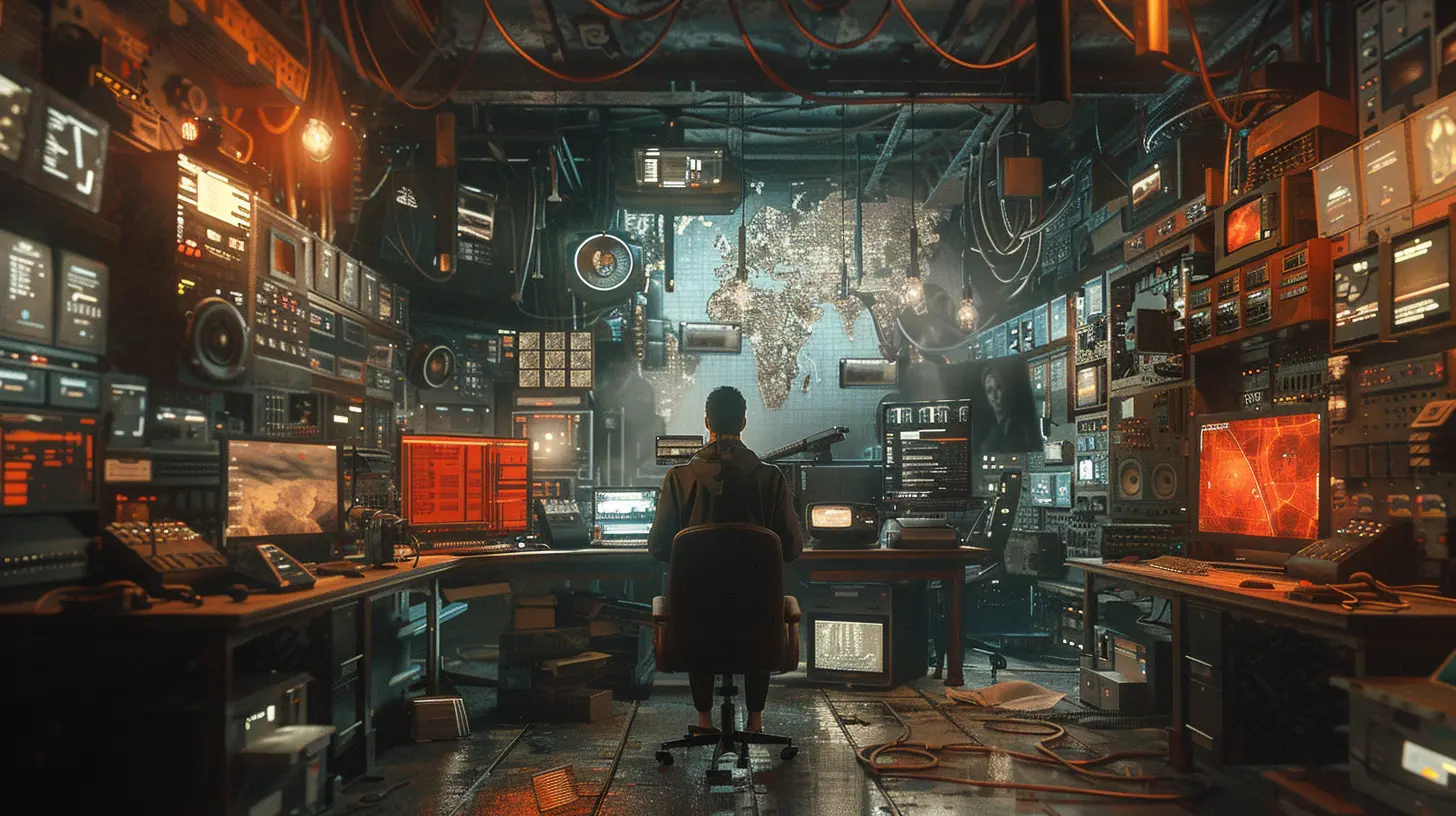
Step 1: Understanding the Game’s Vision
Before a single word is recorded, the voice director has to dive deep into the game’s world. What’s the tone of the story? Is it a gritty post-apocalyptic survival game or a lighthearted fantasy adventure? What kind of emotions do the characters need to convey?This stage involves a lot of collaboration. The director works closely with writers and narrative designers to understand each character’s arc, motivations, and relationships. They might even sit down with concept artists or animators to get a sense of how the characters look and move. Basically, they’re soaking up every little detail to make sure the voice acting feels authentic.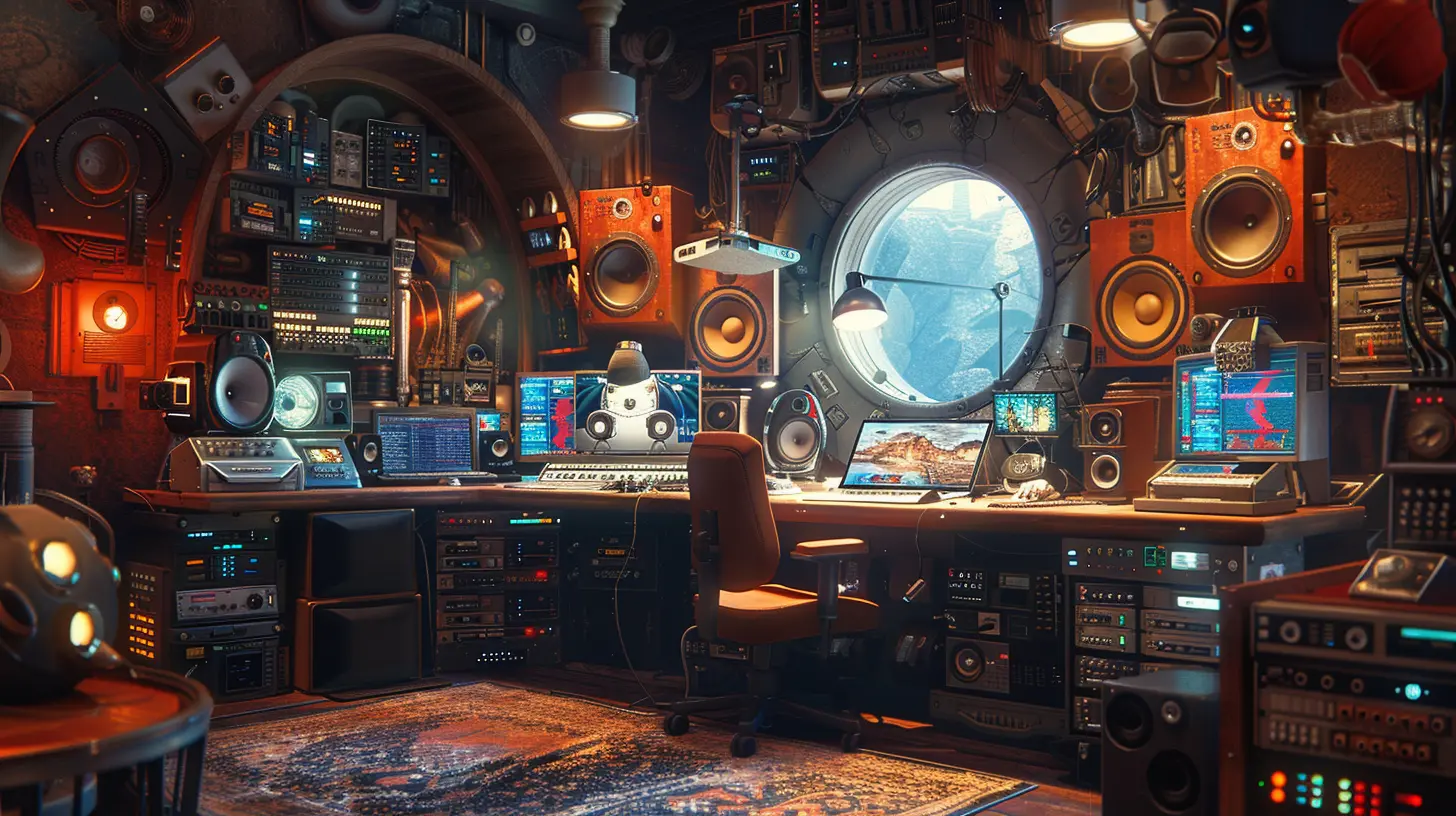
Step 2: Casting the Perfect Voices
Casting is where the magic starts to take shape. Finding the right voice for a character is like finding the perfect key to unlock a door. A skilled voice actor doesn’t just read lines—they become the character.Voice directors often hold auditions where actors perform sample lines. Sometimes, an actor blows everyone away on the first try. Other times, it’s a long process of trial and error. Directors aren’t just listening for a “nice” voice; they’re looking for someone who can capture the character’s essence. A grizzled war veteran won’t sound the same as a mischievous thief, right?
And let’s not forget the importance of diversity in casting! More and more studios are making sure their characters are voiced by actors who share similar cultural backgrounds or experiences, adding authenticity to the performance.
Step 3: Prepping for Recording
You can’t just waltz into the studio and start recording—there’s prep work to do! A good voice director meticulously organizes everything before the actors even step up to the mic. This includes breaking the script into manageable chunks (called “line breakdowns”) and marking emotional beats or special directions.Sometimes, directors even create “reference files,” which are audio clips or videos to give actors context. If a character is shouting while dodging laser blasts, it’s helpful for the actor to know the energy level they need to hit. It’s like giving them a map to navigate the emotional landscape of the scene.
Step 4: Recording Sessions
Now comes the fun part—recording! This is where the real magic happens, but it’s also where the pressure ramps up. Actors typically record in soundproof booths while the voice director oversees the session, giving feedback and guidance.A single line might be recorded a dozen different ways. Why? Because context is king. A line that sounds fine on its own might not fit when paired with the music or animations. The director might ask for subtle tweaks: “Can you make it a bit more sarcastic?” or “Try adding a touch of vulnerability here.” It’s a dance between precision and creativity.
Oh, and here’s a fun tidbit: video game voice actors often have to record non-verbal sounds, too. Think grunts, screams, and even death cries. It sounds ridiculous, but these sounds add a lot of realism to the gameplay. (Imagine playing a fighting game where nobody makes a sound—it’d feel super weird, right?)
Step 5: Post-Production Magic
The work doesn’t stop once the actors leave the studio. In post-production, the recorded lines are edited and synced to the characters' animations. Sound engineers might clean up audio, remove background noise, or adjust the pitch to match the character’s age or build.Sometimes, if the pacing or tone of the dialogue doesn’t feel right, actors might be called back for additional recording sessions (known as “pick-ups”). It’s all about polishing the performance to perfection. Yes, it’s time-consuming, but the results are totally worth it.
Challenges in Voice Direction
Of course, it’s not all smooth sailing. Voice direction comes with its fair share of challenges. One big hurdle? Time and budget constraints. Recording sessions can be expensive, so there’s often pressure to get things done quickly without sacrificing quality.Then there’s the issue of localization. If a game is being translated into multiple languages, the voice director has to work closely with localization teams to ensure performances stay faithful to the original vision. It’s a balancing act that requires a lot of communication and cultural sensitivity.
Voice Direction in the Spotlight
If you’re wondering just how impactful voice direction can be, look no further than some of the most iconic games in history. Titles like The Last of Us, God of War, and Mass Effect have set the bar high, delivering unforgettable performances that stick with players long after the credits roll.In these games, voice direction wasn’t just about delivering lines—it was about crafting emotional journeys. It’s no coincidence that these games have won awards for their storytelling and performances. Voice direction is the unsung hero that ties it all together.
Wrapping It Up
So there you have it—the ins and outs of voice direction in video game development. It’s a process that blends creative storytelling with technical precision, and it’s one of the reasons modern games feel so immersive. The next time you’re playing a game and find yourself tearing up at an emotional monologue or laughing out loud at a clever one-liner, take a moment to appreciate the voice directors behind the scenes.They’re the silent orchestra conductors, ensuring every note hits just right. And honestly, without them, our favorite games wouldn’t feel nearly as alive.
all images in this post were generated using AI tools
Category:
Voice Acting In GamesAuthor:

Whitman Adams
Discussion
rate this article
6 comments
Micah Reynolds
Insightful peek into voice direction's challenges!
May 13, 2025 at 2:52 PM

Whitman Adams
Thank you! I'm glad you found it insightful. Voice direction truly plays a crucial role in shaping a game’s narrative.
Maddison McKenzie
This article brilliantly highlights the intricate voice direction process, showcasing its crucial role in enhancing character depth and player immersion.
May 8, 2025 at 4:45 AM

Whitman Adams
Thank you for your kind words! I'm glad you found the article insightful and appreciated the role of voice direction in video game development.
Dominic Myers
Voice direction in gaming? It's not just about sounding cool—it’s about bringing characters to life! A great voice can turn a bland NPC into a fan-favorite. So, dear devs, if your voice actors aren’t getting the spotlight they deserve, rethink your game plan. 🎤✨
May 7, 2025 at 3:52 PM

Whitman Adams
Absolutely! Voice direction is crucial for immersing players in the game world and making characters memorable. Great voice acting can truly elevate the entire experience.
Kason Barnes
Fantastic insight into the often-overlooked art of voice direction in gaming! Your exploration of the collaboration between directors, actors, and writers sheds light on the intricate processes that enhance immersive storytelling. Looking forward to more articles that highlight the creative aspects of game development!
May 7, 2025 at 4:20 AM

Whitman Adams
Thank you for your kind words! I'm glad you enjoyed the article and appreciate the importance of voice direction in gaming. Stay tuned for more insights!
Simone Strickland
Voice direction in games: where actors nail the emotions while I’m just trying not to trip!
May 3, 2025 at 3:10 PM

Whitman Adams
Thanks for your comment! Voice direction truly elevates performances, capturing emotions that enhance the gaming experience. It's a challenging yet rewarding process for everyone involved!
Erin McGivern
This article offers a fascinating glimpse into the often-overlooked voice direction process in video game development. It highlights the critical role of voice actors and directors in bringing characters to life, enhancing the overall narrative experience. Understanding this aspect deepens appreciation for storytelling in gaming. Great read!
April 26, 2025 at 5:09 AM

Whitman Adams
Thank you for your thoughtful comment! I'm glad you found the article insightful and are appreciating the vital role of voice direction in gaming narratives.
